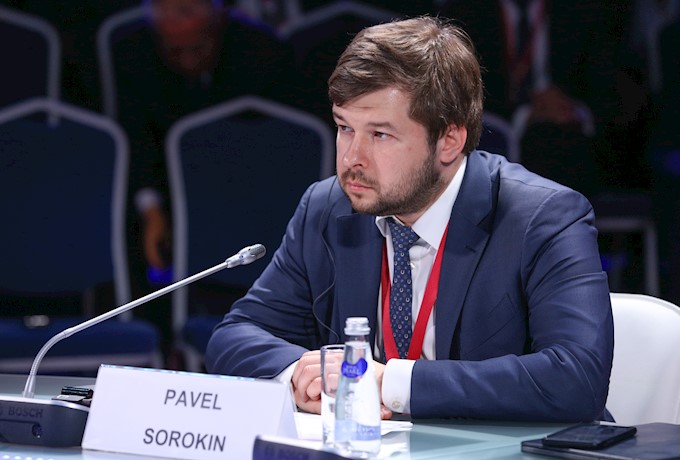
Oil and Gas Industry. Regulatory Activity and Prospects for Development of Oil and Gas Industry in Russia and China
KEY CONCLUSIONS
Oil and gas industry plays a major role in bilateral cooperation
“Russia is one of China’s key trade partners. Last year, we reached a notable progress in construction of oil and gas pipelines from Russia to China. That is why we keep track of regulatory policy in the Russian Federation,” Wang Nengquan, Principal Researcher, Sinochem's Economics and Technology Research Center.
“Investment in Russia is a large share of our total investment. Everybody knows that the LNG project in Yamal has attracted investment from China. Yet again, it proves our expectations are justified,” Xu Jianshan, Director, CNPC Economics and Technology Institute.
Cooperation in oil and gas industry has a great potential for development
“Russia is open for partnership and developing potential for Russia—China cooperation to the full is truly important for us. This ranks among the highest potentials for mutual investment and interest in the world,” Pavel Sorokin, Deputy Minister of Energy of the Russian Federation.
“The total financing required for complex plan measures [for the development of the Arctic, — Ed.] is expected to be about 10.5 trillion roubles. This is mostly non-budget investment. No doubt, these projects can be interesting for Chinese investors,” Denis Khramov, First Deputy Minister of Natural Resources and Environment of the Russian Federation.
“In 2018, China’s need for Russian gas significantly grew. Russia’s capabilities for gas extraction and export allow to ramp up cooperation. In future, China will see an increment of gas consumption, which offers an incredible market outlook for our countries,” Wang Nengquan, Principal Researcher, Sinochem's Economics and Technology Research Center.
“We know that Russian operations constantly develop infrastructure and opportunities to distribute gas in Russia. We invite our Russian colleagues to participate in improving China’s gas distribution system,” Li Yinghua, Deputy Director, Department of Oil and Gas, National Energy Administration.
PROBLEMS
Russia faces growing competition among energy resources suppliers
“There is a number of challenges that we have to fight: overcoming long distances, climate, there is room for improvement in energy efficiency, and of course, the growing competition both among countries that supply natural resources and among fuels. The latter means it is the market share competition in energy generation against renewable energy sources and among coal, gas and oil. It is important to raise efficiency to keep our deposits attractive,” Pavel Sorokin, Deputy Minister of Energy of the Russian Federation.
China needs to be better informed on Russian Federation’s fiscal policy
“The tax base and the preferences that the Russian party provides to Chinese companies are really good. But maybe we do not fully understand how the fiscal policy works and would like to understand how we can enforce cooperation between Russia and China,” Wang Nengquan, Principal Researcher, Sinochem's Economics and Technology Research Center.
SOLUTIONS
Stimulating investment in the oil and gas industry
“The Government is already taking measures to make investment in the Arctic more attractive. Special conditions are put in place: there is a regional income and property tax break. We are already providing the license for geological survey in the Arctic for a longer time than anywhere else in the country. The usual term is 5 years, while in the Arctic it is 7. There is no mineral extraction tax for oil deposits located to the north from the Arctic Circle. We have reduced the initial and regular fees for subsoil use, introduced the declarative procedure for obtaining licenses for hard resources and hydrocarbons fields development,” Denis Khramov, First Deputy Minister of Natural Resources and Environment of the Russian Federation.
“The Government provided preferences to exhausted, remote or difficult deposits in East Siberia, in the Arctic territories. The share of extraction with preferences is growing. It tells us that the Government sees the problems and tries to resolve them together with investors and businesses,” Pavel Sorokin, Deputy Minister of Energy of the Russian Federation.
“Starting from this year, there is a tax system experiment that will factor in actual project cash flow: not just apply taxes to the revenue but look into the economic factor of the projects. The add-on yield tax can significantly raise profitability for deposits with high costs and result in higher output in those deposits, by up to 40% over the project’s life cycle,” Pavel Sorokin, Deputy Minister of Energy of the Russian Federation.
For more information, visit the Roscongress Foundation's Information and Analytical System at roscongress.org/en.








